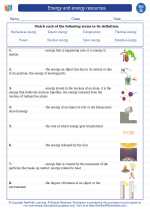What is Economic Sustainability?
Economic sustainability is the ability of an economy to maintain a defined level of economic production indefinitely. This involves using resources efficiently and responsibly to meet the needs of the present without compromising the ability of future generations to meet their own needs.
Key Elements of Economic Sustainability
1. Resource Efficiency: Ensuring that resources are used in a way that minimizes waste and maximizes their potential for future use.
2. Long-term Planning: Developing economic policies and strategies that consider the long-term impact on the economy and the environment.
3. Equity: Ensuring that economic benefits and opportunities are distributed fairly among current and future generations.
4. Innovation: Encouraging the development of new technologies and practices that promote sustainable economic growth.
Challenges to Economic Sustainability
1. Overconsumption: The excessive use of resources beyond their regenerative capacity can lead to depletion and environmental degradation.
2. Inequality: Disparities in income and access to resources can hinder economic sustainability by limiting opportunities for future generations.
3. Environmental Degradation: Pollution, deforestation, and other forms of environmental damage can undermine the long-term health of the economy.
Strategies for Achieving Economic Sustainability
1. Sustainable Resource Management: Implementing policies and practices that promote responsible use of natural resources.
2. Green Technologies: Investing in and promoting the use of environmentally friendly technologies that reduce the environmental impact of economic activities.
3. Education and Awareness: Raising public awareness about the importance of economic sustainability and the need for responsible economic practices.
4. Policy Development: Enacting regulations and policies that incentivize sustainable economic practices and discourage unsustainable behavior.
Benefits of Economic Sustainability
1. Long-term Prosperity: By managing resources responsibly, economies can maintain stable and consistent growth over time.
2. Environmental Protection: Sustainable economic practices minimize environmental damage and contribute to the preservation of natural resources.
3. Social Equity: Economic sustainability promotes fair distribution of resources, benefiting current and future generations.
Conclusion
Economic sustainability is essential for ensuring the long-term health and prosperity of an economy. By prioritizing responsible resource management, equitable distribution of economic benefits, and long-term planning, economies can achieve sustainable growth and meet the needs of present and future generations.
.





